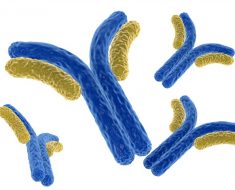
‘People at school never believed there was anything wrong with me,’ says 21-year-old Erin MacDonald.
She is one of 300,000 people in the UK living with Tourette Syndrome and part of the 10% of those with Tourette’s with coprolalia – involuntary outbursts of obscene words or socially inappropriate remarks.
‘They thought I was exaggerating or lying to get attention,’ the Newcastle local adds.
Unlike most people living with the condition whose tics manifest in early childhood, Erin tells Metro.co.uk hers started in September 2017 when she was 15 years old.
‘I was struggling with my mental health but I was a gold star student and people made a fuss of how well I was doing, so I put a lot of pressure on myself to just get on with it,’ says Erin.
‘It started with a twitch in my neck that I would get when I felt insecure, anxious or stressed, then things started snowballing – I would click, clap, and move my arms uncontrollably.

‘Then over the years I started to develop verbal tics – whistling and clicking, then words, then full sentences.’
Erin was diagnosed at the age of 18 in March 2020 during lockdown.
Erin explains that she initially felt embarrassed of her verbal tics because the sparked negative reactions from her friends and people at school.
‘There was a time when I was waiting to get into the school gates after lunch, and it was quite cold so I was ticcing a lot,’ says Erin.
‘My friend spun around in a big group of people and started shouting at me to stop pretending I have tics.
‘I was really stunned – it just made me feel worse about my Tourette’s and then that in turn just makes the tics even worse.’
Erin’s Story: Diagnosis Process #TourettesAwareness #TourettesDiagnosis #TourettesSyndrom #ItsWhatMakesMeTic #TourettesAction
Erin says her social life was severely impacted by her Tourette’s Syndrome because before her tics manifested it was ‘much easier to blend in’.
She says: ‘Tourette’s has massively impacted my social abilities. It was made into a joke at school and I was only known as “the girl with Tourette’s”.
‘People don’t often think about it as a disabling condition and the media often portrays it as something to be laughed at, but it’s had an effect on every aspect of my life.’
But Erin wants other people living with Tourette’s to know that they are not alone.
‘You have to be honest with yourself about what’s happening and how you’re feeling – and talk about it,’ she advises.
‘Go to someone you can depend on who you genuinely trust will look out for you.’
Erin urges those who have been newly diagnosed to do as much research as they can because all she received upon diagnosis was a letter and a twice yearly neuropsychiatry appointment.

‘It might feel all-encompassing at first, but the more you understand what you’re going through the easier it is to deal with,’ she adds.
‘It doesn’t have to be something you’re thinking about constantly and you can still lead a life that you enjoy.’
Now studying clinical psychology at the University of Sunderland, Erin has gone on to become an ambassador for UK charity Tourette’s Action’s ‘It’s What Makes Me Tic’ campaign – aiming to show the British public what living with Tourette’s is truly like.
‘I felt so alone when my tics first developed and no one else understood what was happening to me,’ she says.
‘Going to a Tourette’s Action event was so refreshing because I had access to face to face support and got to speak to people who were going through the exact same thing as I was – and that’s so important, especially for younger people.’
Do you have a story to share?
Get in touch by emailing [email protected].
Source: Read Full Article





